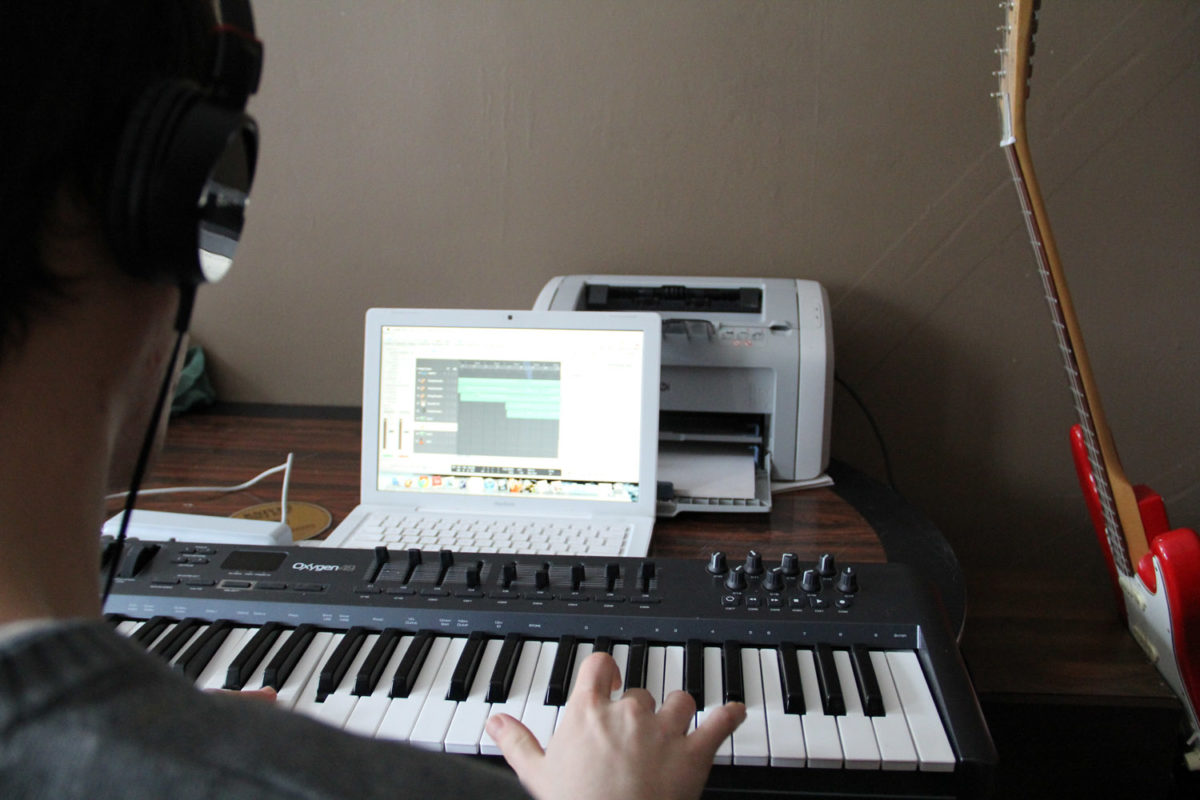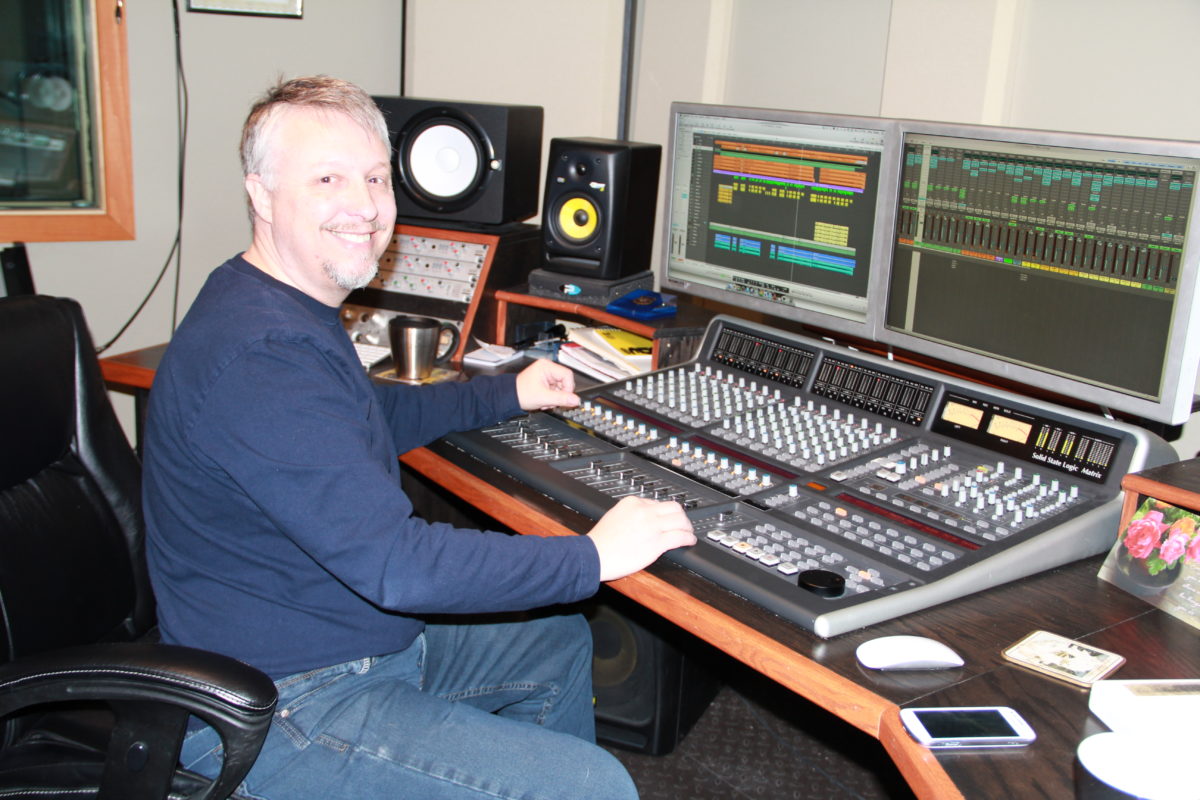
In the ’80s, Sonic Youth smashed beer bottles and pounded their guitars with the crumbled necks. Before that, The Beach Boys improvised the sounds of Paul McCartney crunching on some celery into one of their hit songs. Years ago, bands always mingled erratic improv noise into their recordings, making them unique and hard to replicate.
However, tons of today’s studio albums are so auto-tuned that they’re more machine than human. It’s true that technology advancements are forever improving the sound quality of music, but is this fancy equipment leaving something behind? Music just might be losing creativity to switches and buttons.
What is happening now is amateurs toying around in their parent’s basements have the ability to take you to unfamiliar dimensions of noise. Many musicians in the Fredericton scene are clocking in the at home hours and producing do-it-yourself records. St. Thomas student Patrick Lenihan is one of them.
Lenihan recently released his second solo EP titled Nonagram.
“My last EP was more acoustic whereas this one is a lot more electronic with harmonies inspired by The Beatles and The Beach Boys.”
The goal for the 15 minute recording is to be good “going for a walk” music. The beginning is speedy and groovy, but as it veers to the end, the songs become tranquil with a few spooky twists in the flow.
For this student musician, one of the biggest benefits of the DIY route is the price. This way you can put as much or as little funds into your own handcrafted creation.
“If I did have money to do a professional recording I’d probably do some kind of mix of in and out of the studio. There are obvious benefits to using a studio like the sound quality, but there’s something about low-fi which is kind of nice. It’s desirable in some ways because it’s imperfect.”
Nonagram not only sounds unique, but was put together using unconventional means. All the songs were recorded using a Rockband microphone which Lenihan found on the side of the road. He also took advantage of whatever instruments were laying around his small apartment, he found particular joy in his Bontempi keyboard.
Lenihan got wild with looping and spiralling effects which he picked up over random online music forums and then whacked the whole thing together on a cheap program called Reaper.
“Every time I record a song I always learn new things because I’m always trying a bunch of different stuff out,” Lenihan said. “A professional could be like I want it to sound exactly like this and they can just do it, but to do it by yourself you really get to discover things, it’s very experimental.”
Another perk to the DIY method is the ability to record whenever the mood strikes, whether it’s the middle of the night or during breakfast. This availability works for Lenihan because he usually draws inspiration from natural rhythms of the every day. He is currently exploring the sounds of a spring, a tube and some pretzels to create a steady street soundscape.
“There’s no formula for making good music and I think that if you can make really good songs alone in your room then that’s just as legitimate as going to a studio.”
__________________________________________________________________________________________


DIY recordings may be wild and experimental, but they do have their drawbacks in terms of quality. Plus, being a little professional never killed anyone. So, if you’ve got the dough and the right people to work with, why not experiment with the studio perception of things?
On the side of the Hanwell rests the Milky Way, which happens to be a quaint area on the outskirts of the city and not the galaxy. If you travel past Saturn Crescent and Mercury Lane you’ll find the resting place of one of Fredericton’s newest recording studios.
2Dogs Productions is owned and operated by Gilles Rogers and his small, but efficient staff of three. Rogers opened the studio in 2011 after retiring from the Ottawa RCMP.
Upon arriving at the studio, a cocker spaniel and a beagle gaze out the window.
“They’re co-owners,” Rogers jokes. The smiling man offers a cup of tea as he welcomes musicians and guests into his home.
“When I retired, I wanted to make a studio for myself, but I’ve always been a working man and thought I might as well kick it up a notch and see if I can help out the community,” said Rogers.
2Dogs may be run from a basement in the sticks, but it’s no half-assed operation. The mixing room is intimidating with a whack of professional gadgets lining the walls. Rogers has spent hundreds of thousands of dollars on his not so little project. One of those high ticket items is the SSL Matrix console, currently there are only two recording studios in Canada which have the privilege of using this baby.
“If you come in here you get the same kind of services and equipment that you would find if you went to New York , Los Angeles or Nashville.”
That being said, Rogers knows how hard hurting for cash musicians can be. So, he has started incorporating student pricing as a means to help amateurs bring their music to the next level.
Rogers admits that many university students are talented and their DIY mantra is respectable and even has its place within the music realm. However, he believes if you want to be taken seriously then you need that quality expertise which only a studio can offer.
“There have been some great records recorded in people’s bedrooms, but when you get to a certain place in your career as an artist you want to be taken seriously. You need to realize that this is a business, that means that you’re going to have to do a lot of things that are not fun or easy, but it’s part of your job.
This humble producer not only expects top performances from his clients, but also from himself and staff. They go far beyond just mixing some tracks and fidgeting with volume levels. The gang at 2Dogs try to establish a relationship with the musicians who saunter in their doors.
“My job as a producer is to really get to understand these people and find out what their dreams are. My job is to bring your music to life and get you to learn something so when you leave here, you’ll be better than when you arrived, you will feel like you’ve improved.”
